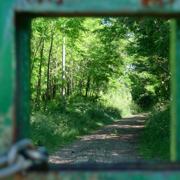
On the return of woods
International Landscape Study Days
2016, twelfth seminar
18th-19th February 2016
February 2016 will see the twelfth in the series of annual International Landscape Study Days, with a succinct title that introduces a subject which already attracts considerable attention amongst the scientific community and in the institutional world, but which we wish to expose to wider critical debate and to an exchange of experiences that reflect the lines of research pursued by the Foundation. As always, the Foundation has invited figures representing different disciplinary fields, geographical areas and working environments to gather around the same table to discuss this specific aspect of the study and care of places.
In line with the focus in recent years on the subjects Caring for the land(2014) and Landscape and conflict (2015), the title chosen for 2016 – On the return of woods – signals the launch of a critical reappraisal of an ongoing process which is clearly visible in the landscapes around us, at once full of contradictions and conflicts but also of signs of reconciliation.
“The return to the land”, a recurrent theme in previous Landscape Study Days, here takes on a specific connotation and explores the contrasts of the dual register currently operating in our world, characterized on the one hand by pastureland and fields being eroded by the inexorable advance of woods, while on the other there are entire regions being devastated by deforestation. The landscape, economic and ecological aspects of the phenomenon all require study, as do its other dualities, such as that of a western culture which has long feared the looming presence of woods but which is now clearly attracted by them. This attraction embodies, more or less consciously, many of the symbolic, narrative, botanical and ecological aspects that were recognized and expressed by garden culture from the xv-xvi century notion of “wildness” on, and which will be discussed during the Study Days, touching on a wide range of experiences, including the emblematic field of oak trees at the
National September 11 Memorial in New York.
The subject of return of woods is not confined to pastoral and agricultural landscapes, whose enduring equilibrium is currently being subjected to profound change and which will certainly be a subject for discussion during the two-day programme, but seems also to be affecting contemporary towns and cities – from the disarray of suburban districts to the composed formality of carefully designed open spaces – with expressions that also employ new forms to explore the fertile and contradictory connections that link contemporary society and the culture for which woods have always been an inescapable part of landscape, and which is now visible, for example, in the aspirations of a society that seeks the idea of a new quality of life in the proximity of a wood.
There will be references to and contributions on Italian situations in which these issues have been discussed and developed, from the now long-established “Boscoincittà” in Milan up to the recent experimental activities of our Foundation concerning the case of the former Powder Magazine in the Montello woods, the debate over which reflects many of the points of view presented in the contributions to the programme of the Study Days.
These and other themes will be examined in the two-day programme, in which literature and cinema will also help to bring into focus the value and the role that woods and their “return” continue to assume in contemporary landscapes.
